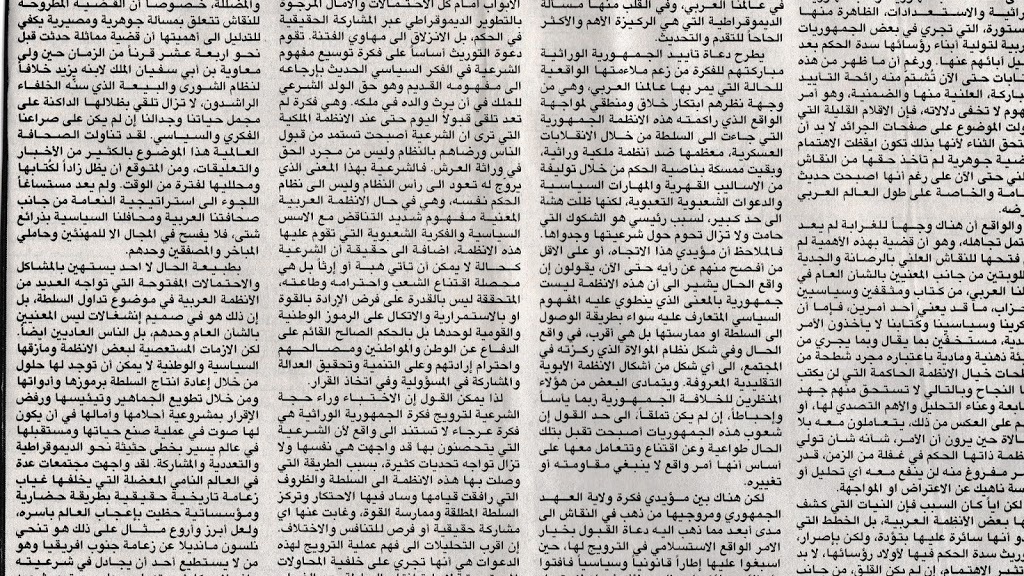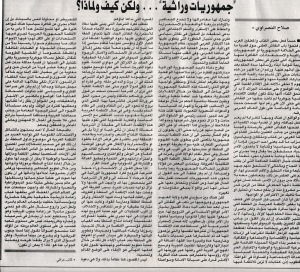Turkish-PKK truce irks Baghdad
Apart from anger, Al-Maliki does not seem to have a strategy to deal with the PKK’s deployment in northern Iraq, writes Salah Nasrawi
When Turkey gave refuge to fugitive Iraqi Vice President Tarek Al-Hashimi last year Iraqi Prime Minister Nuri Al-Maliki wondered in an interview with a Turkish newspaper how Turkish Prime Minister Recep Tayyip Erdogan would react if Iraq grant imprisoned Turkish Kurdish leader Abdullah Ocalan asylum in Baghdad. Al-Maliki’s rhetorical question came amid rising tension between the Iraqi Shia leader and Erdogan after Ankara provided shelter to Al-Hashimi and over its engagement with Iraq’s autonomous Kurds and Sunni Arabs who are at loggerheads with the central government over power sharing.
This week thousands of Ocalan’s guerrillas started deploying into Iraq under an agreement which Erdogan’s government signed with the Kurdish rebels without prior consultation with or even notification to the Baghdad government. The Turkish Kurdish rapprochement now poses a stark challenge to Al-Maliki as the Iraqi leader seems to be lacking a strategic thinking and effective diplomacy towards Iraq’s powerful northern neighbour.
Under the deal reached by Ocalan and the Turkish government in March, the Kurdistan Workers Party, or PKK, agreed to end a nearly three-decade armed struggle against Turkey in expectation of granting the Kurds in Turkey political and cultural autonomy. The PKK, which is considered a terror group by Turkey, agreed to withdraw all its fighters from Turkish soil to a safe heaven in the mountains of northern Iraq where the group has maintained bases as springboards for its attacks against Turkey for nearly three decades.
Iraq’s initial reaction to the retreat came in a softly worded statement from its Foreign Ministry. While Iraq supports the peace deal, the ministry said, “it does not accept the entry of armed groups into its territories that can be used to harm Iraq’s security and stability.” Al-Maliki had probably preferred not to speak out for now but the leader of his Shia bloc, the Iraqi National Alliance, Ibrahim Al-Jaafari criticised the transfer of the PKK guerrillas as an infringement on “Iraq’s sovereignty and interference in its internal affairs”. “We refuse to let Iraq to be a scapegoat,” he said in a statement.
Iraqi Sunni leaders who enjoy good relationships with Turkey and look for Ankara’s support in their standoff with the Shia-led government in Baghdad maintained silence on the PKK’s move. The Kurdistan Regional Government which controls northern Iraq also has kept a tight lip despite media reports that an understanding has been reached with its leadership prior to the deal.
Turkish Foreign Minister Ahmet Davutoglu blasted Baghdad’s reaction as dubious. He said Baghdad has no right to object because the PKK troops have already came from inside the Iraqi territories to attack Turkey. “So, why is the Iraq government is now objecting to their return to these territories?” said Davutoglu.
The PKK, meanwhile, tried to mitigate Iraq’s concern by promising that the deal will not come at Iraq’s expense. “The (peace) process is not aimed against anyone, and there is no need for concerns that the struggle will take on another format and pose a threat to others,” PKK spokesman, Ahmet Deniz said in a statement. “A democratic resolution will have a positive effect on the region,” Deniz said. “We understand the concerns, but the process is related to the resolution of the Kurdish issue and won’t cause harm to anyone.” Deniz urged both Baghdad and Erbil to support the agreement.
Relations between Baghdad and Ankara deteriorated after Ankara refused to extradite Al-Hashimi who has been sentenced to death on charges of terrorism including murder. In addition, several bones of contention, including the Syrian conflict and Turkey’s close relations with Iraqi Kurds have strained ties between Ankara and Baghdad.
Tensions have flared recently between Al-Maliki government and Turkey after Baghdad accused Ankara of sowing sectarianism in Iraq over Turkey’s support to Iraqi Sunnis. Last week Iraq’s Acting Defence Minister Saadun Al-Dulaimi accused Ankara of fuelling sectarian tensions in Iraq by supporting Arab Sunnis. Al-Dulaimi accused Turkey of dealing with Iraq as if it is still “a part of the Ottoman Empire”.
The rift deepened in April when Iraqi Kurdistan Regional Government (KRG) started shipping oil to international markets via Turkey in independent export deals. The move has aggravated tensions between the KRG and Baghdad, which considers the sales to be illegal and a challenge to its claim to full control over Iraq’s oil.
Turkey, on the other hand, hopes that closer economic and political relations with Iraqi Kurds may shift regional power in its favour. To complicate things Ankara has struck the deal with the PKK without bothering to inform Al-Maliki’s government, as if it is a regime that is not worthy to deal with.
Iraq has happily taken a pacifist bent on the PKK presence in northern Iraq and was determined to keep that as long as the PKK was fighting Turkey. Now the ceasefire will have a far reaching impact on Iraq including contributing to strengthening Turkey and deepening Iraq’s ethno-sectarian division. The main threat facing Baghdad is clear: Turkey’s increasing leverage in Iraq will invoke fears of superiority close to domination.
The agreement between the Turkish government and the Kurds is expected to bring Ankara closer to Iraq’s northern region of Kurdistan and allow it to boost ties with Iraq Sunni Arabs and Turkmen. Also, there are fears that the retreating PKK fighters will now join forces with the Kurdish Pehsemrgas in Iraq’s north, adding tension to already souring relations with Baghdad.
In addition to the rebels, thousands of pro-PKK Turkish Kurds have sought safe heaven in northern Iraq since the US invasion in 2003 benefiting from a power vacuum in post-Saddam Hussein Iraq. In many parts of Iraqi Kurdistan the PKK operates political and security offices, increasing its influence in Iraqi Kurdistan’s domestic politics.
Iraq’s main concern is that a power struggle between the PKK and Iraq’s Kurds could ensue as the group becomes more powerful, bringing Turkey closer into Iraq’s ethno-sectarian rivalry. There are reports that the PKK is already taking side in the dispute over a controversial presidential election in Kurdistan later this year. Major Kurdish parties such as Iraqi President Jalal Talabani’s Patriotic Union and the opposition Goran (Change) Party are opposed to President Masoud Barzani’s efforts to get elected for a third term. The controversy could spark a leadership struggle in Kurdistan.
Meanwhile, the Turkish-PKK deal will have another geopolitical ramification mainly on Iraq’s two other neighbours Iran and Syria, where Kurdish rebels affiliated with the PKK are also fighting for autonomy. Iraq will most certainly view a larger Turkish-PKK involvement in its two neighbours as game-changing and a threat that will keep it hostage to unresolved regional issues.
However, apart from the political rhetoric voiced by leaders of the Baghdad government, Al-Maliki has exhibited an essential lack of strategy in dealing with this issue reflected in a complete absence of initiatives and engagement. On Tuesday the first patch of the PKK guerrillas arrived in northern Iraq, yet Baghdad’s political class shows little sign of knowing or caring how the country’s political clout should be deployed to face up to the Turkish contempt.
The Iraqi Foreign Ministry which should be crucial to informing the country’s strategic vision, is puny. It didn’t even bother to summon Turkish diplomats in Baghdad to protest the violation of Iraq’s sovereignty. A decision by the Baghdad government on Tuesday to file a complaint to the UN Security Council about the Turkish move can hardly be a robust response to Ankara’s challenge.
With about $10.8 billion of Turkish goods and services were exported to Iraq last year. Iraq is Turkey’s second largest trade partner and its single biggest export destination. Yet Baghdad seems unable to encourage its ungrateful neighbour to stop being a thorn in Baghdad’s side.
This policy and diplomacy muddle is in part a consequence of key policy-makers’ short term thinking to try to keep the Baghdad government in power, rather than to serve strategic national interests — a major feature of the Al-Maliki administration.










